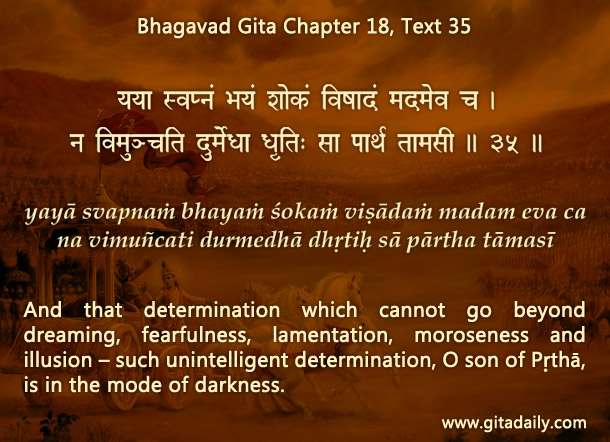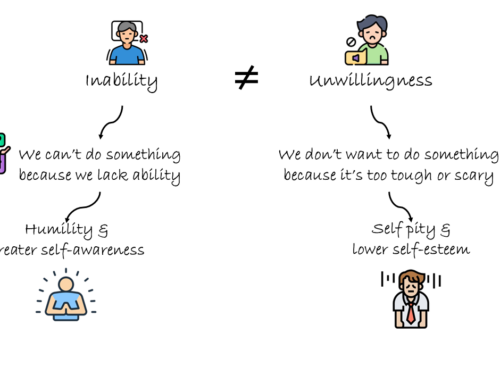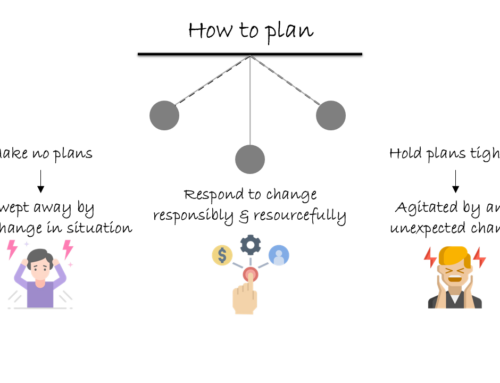Suppose we get physically wounded, but are immediately told to resume normal activities. We won’t be able to.
A similar principle applies to emotional wounds that we may sustain, say, on losing a loved one. Grieving provides us appropriate channels for expressing and processing our loss, thereby gradually freeing our consciousness from emotional clogging. If without being given time to grieve, we are told to resume life immediately as if nothing has changed, we won’t be able to function.
A season for grieving can be a valid need for emotional healing. However, we may unwittingly aggravate our emotional wounds by letting the loss replay endlessly in our minds, thereby sentencing ourselves to a lifetime of grieving. Such holding on to distressful stimuli characterizes determination in the mode of ignorance (Bhagavad-gita 18.35)
How can we avoid unhealthily prolonging our grief? By redefining ourselves spiritually. We are relational creatures; we define ourselves in terms of our most important relationships. As long as we see ourselves primarily in terms of our loss – as, say, orphans or widows or widowers – we perpetuate our emotional wounds.
Gita wisdom helps us focus on our core identity: we are first and foremost souls who are eternal parts of the Supreme, Krishna. Once this relationship becomes our defining identity, we see our other relationships in perspective. We understand that it was ultimately Krishna who had offered us his love through our deceased loved one, and that Krishna is still available for us in our hearts. When we strive to connect with him by heartfelt bhakti practice, we increasingly sense his healing presence.
Thus, when we are guided by bhakti wisdom, our season of grieving, instead of prolonging into a lifetime of grieving, stimulates us to heal and grow toward an eternity of living with Krishna. 
To know more about this verse, please click on the image
Explanation of article:
Podcast:





LIFE is always enveloped with ups and downs